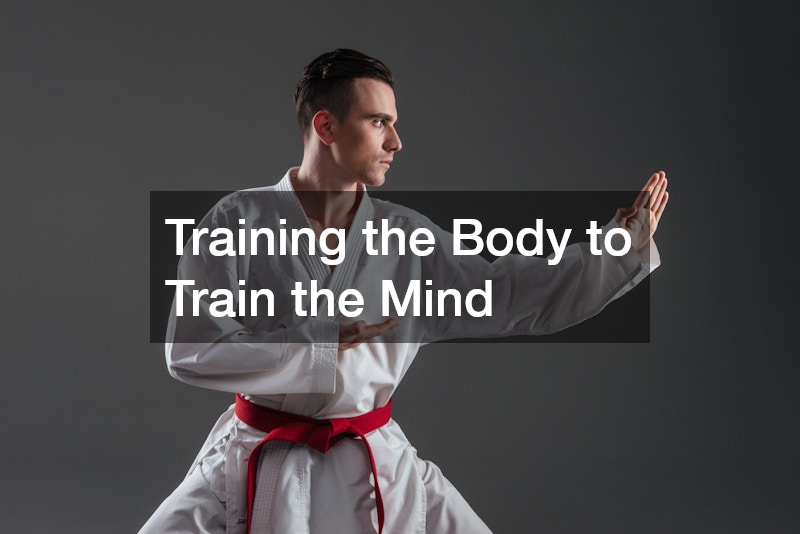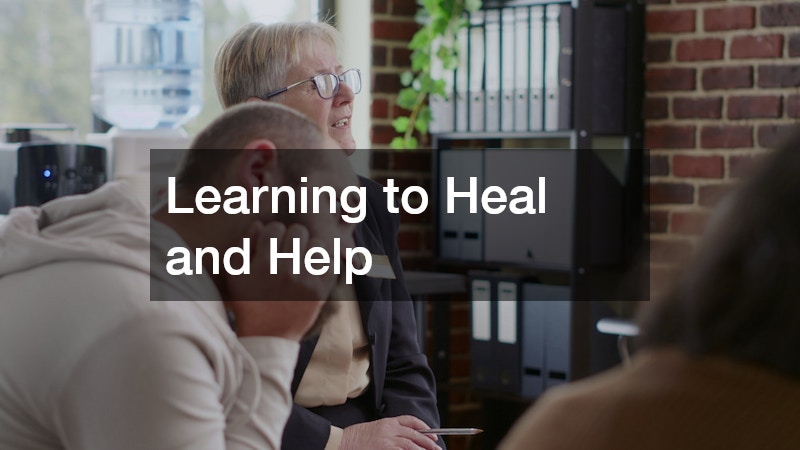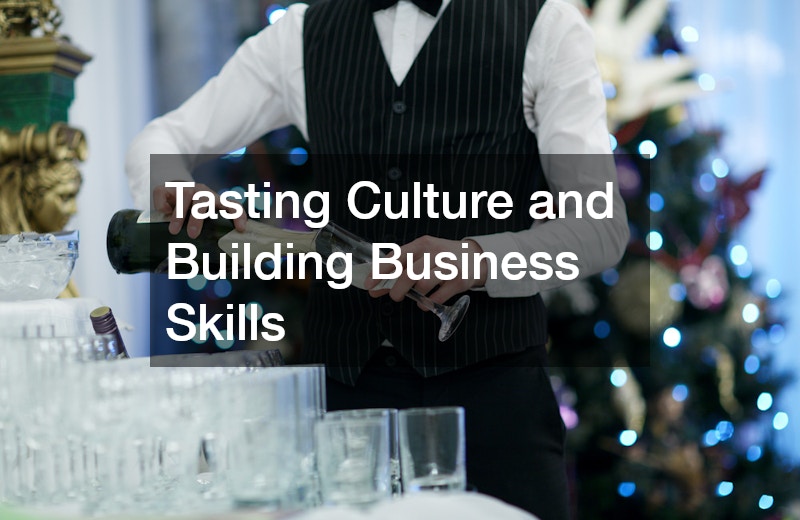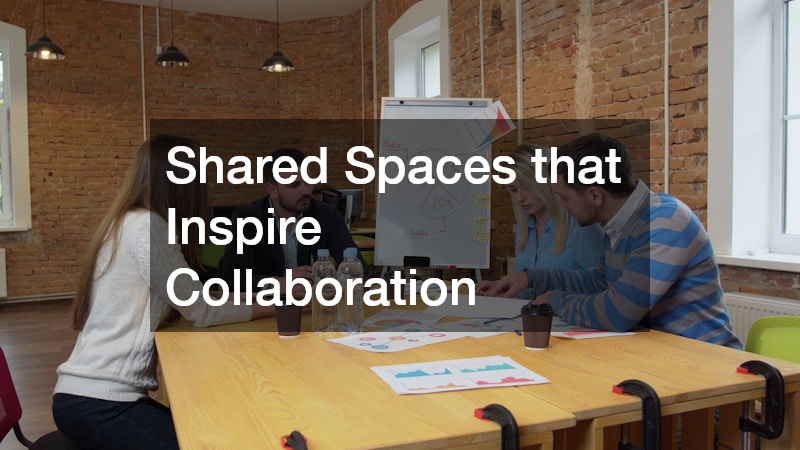Lifelong learning has become an essential mindset in today’s fast-paced world. The idea of continuously growing, questioning, and absorbing knowledge outside of formal education is not just for professionals or academics—it’s for anyone with curiosity. But the magic of lifelong learning isn’t always about sticking to traditional subjects. Sometimes, the most enriching learning experiences come from diving into topic categories that we never expected to be so rewarding.
Whether it’s a niche hobby, a scientific concept that crosses over into everyday life, or a skill that helps build discipline or creativity, unexpected topics can reignite a passion for learning. They challenge our assumptions and often connect to broader life goals like personal health, creativity, resilience, or communication. As a lifelong learner, expanding your range of topic categories opens new pathways for personal enrichment. These areas might not fit into a conventional syllabus, but they offer exciting opportunities to make learning a true daily adventure.
The following sections explore a diverse range of unexpected topic categories. Some may appear technical, while others may seem playful or deeply personal. The point isn’t to master everything, but to embrace the process and find joy in discovery. These examples reflect how wide the learning landscape really is, and how even unfamiliar topics can lead to fulfillment and daily inspiration.
1. Training the Body to Train the Mind

Karate classes do more than teach physical defense—they build mental discipline, focus, and resilience. For the lifelong learner, diving into martial arts is about understanding the connection between the body and mind. It’s not just about kicks and punches; it’s about patience, repetition, and respect. These principles apply to all kinds of topic categories and enhance one’s ability to approach learning with structure and purpose. From improved memory to better emotional regulation, physical training influences cognitive development. Lifelong learners benefit by approaching martial arts as a comprehensive discipline that enhances life beyond the mat.
In addition to learning physical movement, martial arts training incorporates philosophy, history, and culture, giving learners an appreciation for Eastern traditions and ethics. This context transforms a fitness class into a study of centuries-old wisdom. Integrating this learning into your daily life offers a powerful framework for decision-making, stress management, and personal accountability. Karate may be one of many topic categories available, but it stands out for its ability to balance intellect and intuition, action and reflection.
2. Mastering Clean-Up After Chaos
Learning how fire remediation services work may not be on most people’s radar, but it’s a compelling area of exploration. Understanding what happens after disasters teaches us about safety, restoration science, and human resilience. For curious minds, this topic provides valuable insights into chemistry, environmental science, and even project management. It falls into unique topic categories that combine practical knowledge with emotional insight, making it a powerful avenue for lifelong learners interested in real-world applications.
This kind of learning experience also promotes social responsibility. Understanding fire remediation highlights how communities rebuild, both structurally and emotionally, after crises. It fosters empathy, strengthens problem-solving abilities, and encourages collaborative thinking. Studying restoration teaches how science meets compassion in the field. It may also spark interest in broader disaster preparedness and climate-related issues, positioning the learner as an informed and engaged member of their community.
3. Exploring Beauty Through Science
Laser hair removal is often seen through a cosmetic lens, but lifelong learners can uncover fascinating science behind the technology. Studying how light energy interacts with hair follicles introduces concepts from biology, physics, and biomedical engineering. The science behind it belongs to topic categories that explore how technology intersects with the human body. This area of learning offers both theoretical depth and practical implications, making it a surprisingly rich field to study for those looking to learn something both technical and relevant.
In addition to scientific knowledge, this subject invites ethical discussions around body image, cultural expectations, and the medicalization of beauty. It encourages learners to explore the psychology behind cosmetic procedures and how societal trends shape individual choices. As one of the modern topic categories where science and self-expression meet, laser hair removal opens opportunities for conversations about identity, self-care, and the future of biotechnology.
4. Learning to Heal and Help

Addiction recovery might be an unexpected area of study, but it offers meaningful opportunities to understand psychology, neuroscience, and community health. Delving into recovery models, therapy techniques, and support networks provides a deeper appreciation of human behavior and resilience. For the lifelong learner, this topic category emphasizes compassion and communication while also introducing scientific concepts related to mental health. It’s a powerful, human-centered subject that fosters personal growth as well as academic curiosity.
Studying addiction recovery also leads to valuable self-awareness. Understanding the science of habit formation, coping mechanisms, and emotional regulation enhances both personal and professional relationships. Lifelong learners who explore this topic category may gain a stronger foundation in empathy, communication, and ethical decision-making. In addition, many find that learning about recovery leads to volunteerism, advocacy, or even careers in social work or counseling, extending their impact far beyond the classroom.
5. Getting Technical with Extreme Conditions
Low temperature test chambers might sound like equipment reserved for scientists, but understanding how materials respond to freezing temperatures is fascinating. These chambers simulate extreme environments, allowing learners to explore physics, engineering, and material science. For those interested in how things function under pressure—literally and figuratively—this topic category is a goldmine. It opens doors to understanding product development, safety testing, and the innovation process. It may be unexpected, but it’s incredibly engaging for the lifelong learner.
By examining how products are tested in these chambers, learners gain insight into how innovation meets durability. This topic also touches on climate science, aerospace engineering, and industrial safety. It expands one’s technical vocabulary and problem-solving toolkit. The practical applications—from ensuring the performance of medical devices to enhancing safety in space travel—make it a surprisingly versatile area of study. For those who love understanding the “why” and “how,” it is one of the most compelling topic categories available.
6. The Joy of Cross-Disciplinary Curiosity
Some of the best learning happens when topic categories collide. For example, studying a hobby like origami can lead to deeper understanding in geometry, art, and even engineering. Lifelong learners thrive on this kind of overlap, where curiosity leads to unexpected discoveries. Exploring broad or hybrid fields helps you approach problems creatively and view the world through multiple lenses. This kind of cross-pollination is a core part of making learning a daily, joyful pursuit.
When learners allow themselves to explore seemingly unrelated fields, surprising synergies appear. An interest in bird watching may lead to studying biology, climate change, and photography. Curiosity about historical architecture may ignite passions for physics, sociology, and travel. These connections foster creativity and adaptability, two traits essential for navigating a changing world. The more diverse your topic categories, the more flexible your thinking becomes. Learning is never wasted when it stretches your mind in new directions.
7. Tasting Culture and Building Business Skills

A catering service is more than food on a plate—it involves logistics, customer service, budgeting, and cultural exploration. For lifelong learners, studying catering offers insight into entrepreneurship and culinary traditions. This topic category merges creative expression with practical business skills. From recipe development to event coordination, there is so much to learn about timing, collaboration, and innovation. Exploring this space can inspire new passions and maybe even launch personal projects or side businesses.
In this domain, learners also explore how food connects people. They gain insights into sociology, history, and cultural diplomacy. Menu planning and dietary restrictions introduce biology and health sciences. There is room for mathematics in portion planning and inventory control. Lifelong learners who dive into this field develop both soft skills—like communication and problem-solving—and hard skills that translate into tangible achievements. As one of the more sensory-rich topic categories, catering invites full-body engagement in learning.
8. Shaping the Online Experience
Responsive web design is an ever-evolving subject that affects how we all interact with digital spaces. Lifelong learners who explore this area gain skills in coding, graphic design, psychology, and marketing. It’s part of modern topic categories that have both technical and artistic layers. Whether you’re creating your own website or understanding how others design for accessibility, this field teaches problem-solving, creativity, and user empathy.
Responsive web design also invites learners to consider equity and inclusion. How does a website work for someone with a visual impairment or limited internet access? What are the ethical responsibilities of designers and developers? These are real-world questions that learners must face. The topic also integrates business goals with user experience, introducing strategy and analytics into the learning journey. It provides a continuous opportunity to adapt to new tools and trends, making it ideal for the endlessly curious.
9. The Science of Clean Air
Gas purification technologies may sound like something for engineers only, but they hold surprising relevance for everyday learners. Understanding how air is filtered, analyzed, and purified opens up new appreciation for environmental science and public health. It belongs to topic categories that affect our homes, workplaces, and global well-being. Learning about how clean air is maintained blends chemistry, physics, and systems thinking. It’s a topic that turns curiosity into environmental awareness.
This subject can also extend into global policy discussions and ethical debates. What responsibilities do corporations have in maintaining air quality? How do governments regulate environmental safety? Learners interested in activism, urban planning, or global development will find relevant and engaging material here. This topic category highlights the importance of systems-level thinking, teaching that our individual and collective actions have consequences. The clearer the air, the clearer the path to understanding our interconnected world.
10. Shared Spaces that Inspire Collaboration

Coop work spaces might not seem educational at first, but they are rich in inspiration. These environments support freelancers, startups, and creatives by providing community and structure. Studying how they function can teach valuable lessons in sociology, business innovation, and even psychology. As part of growing topic categories around flexible work and entrepreneurship, these spaces offer practical insights for learners interested in collaboration, leadership, or creative strategy.
From the way these spaces are designed to how members interact, there is a lot to learn about organizational behavior. Learners can study what makes collaboration successful and what hinders it. These shared environments become case studies in real-time, offering lessons in diversity, productivity, and networking. Coop work spaces demonstrate that where and how we work matters just as much as what we do. They are living labs for the lifelong learner committed to understanding the future of work.
11. Understanding Emotional and Financial Choices
The costs of surrogacy encompass much more than finances. Exploring this topic can teach lifelong learners about medical ethics, family law, reproductive health, and emotional well-being. As part of today’s emerging topic categories in health and society, it encourages empathy, critical thinking, and socio-cultural awareness. Lifelong learning here goes beyond surface understanding, inviting questions about identity, choice, and policy.
By diving into the many dimensions of surrogacy, learners are exposed to global legal differences, religious perspectives, and the emotional journeys of all parties involved. It becomes a deep study of human connection, value systems, and rights. This type of learning challenges assumptions and requires sensitivity and care. It is among the more nuanced topic categories, perfect for learners ready to grapple with complexity and evolve their perspective through layered and meaningful study.
12. Finding Strength in Movement and Stillness
Physical activities like karate, yoga, or even basic stretching routines offer a dynamic way to integrate learning into daily life. Combining motion with mindfulness builds emotional strength, enhances body awareness, and fosters mental clarity. Movement is not just about fitness—it’s about developing resilience, routine, and an appreciation for process over outcome. This topic category invites daily engagement and lifelong benefit.
These practices also create mental discipline that strengthens study habits and emotional intelligence. They offer lessons in breath control, stress management, and body language—tools that serve learners in every area of life. Exploring these activities through a lifelong learning lens encourages self-discovery and lasting health. The merging of movement and stillness opens a unique door into deeper self-understanding and sustainable energy for learning.
Lifelong learning is not confined to textbooks or traditional classrooms. It lives in the unexpected, in those topic categories that make us pause and say, “I never thought of that.” Whether you’re studying how technology works on your skin or exploring emotional journeys like addiction recovery or surrogacy, the point is to remain open and curious.
These unconventional paths make learning feel alive. They bring relevance, emotional connection, and even joy to the process. Every time you explore a new topic, you build connections—not just between ideas, but between communities, cultures, and your own evolving worldview. This is the daily adventure of lifelong learning: not mastering everything, but embracing the richness of discovery. Each day is another chance to find wonder in the world—and yourself—through the unexpected.
